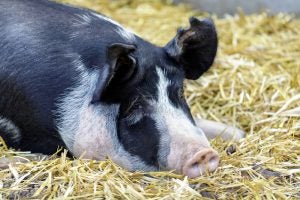The Sept. 30 deadline to reauthorize a new farm bill before the current one expires is looming. Congress predicted from the beginning that it may spill over into October or November of this year before any negotiations were resolved, however, a few were hopeful that talks would speed up. Nutrition program SNAP is a major point of contention between political parties every time a farm bill is set to renew, and this time around, differences between party lines could hinder any timely forward movement.
This is the first farm bill projected to cost in the trillions: $1.5 trillion to be exact. As of the date this article is published, here is where the farm bill reauthorization stands:
Congress has been in recess all of August. While this recess takes place, lawmakers from both the House and Senate vowed to work on their versions of the draft. But, busy schedules with other legislation needing to be negotiated, and hurdles surrounding Congressional Budget Office (CBO) scores are delaying things. The CBO determines financial estimates on farm bill programs.
House chairman Glenn Thompson shared at the recent Penn State Ag Progress Days, “I think there’s going to have to be an extension only because there’s a lot of moving parts.” While Thompson expressed hope that it would be a short term extension, he also said, “Nothing is absolute. Floor time, Senate action, and the politics of the day are all considerations of whether an extension will ultimately be necessary.”

The first step into getting a new bill approved is for both the Senate and House to present each their own versions of the bill, with the laws written the way they prefer. This hasn’t happened yet, and whenever it does, it isn’t likely to be agreed upon immediately. This isn’t to say the drafts aren’t already completed — there are talks that lawmakers are saying the House draft is ready, according to Politico. All of Congress has to agree on what parts of each individual bill to include into the final draft.
Furthermore, the looming federal shutdown on Oct. 1 impacts any talks following the deadline as well.
Senate Ag Committee aides are hopeful about October, but Chairwoman Debbie Stabenow (D-Mich.) believes it could be pushed toward December.
“The committee is continuing to work toward a bipartisan bill that can be signed into law by the end of the calendar year,” she said. “It is not uncommon for Congress to pass the September 30 deadline without passing an extension of the Farm Bill. This is what happened in 2018, when Congress did not pass an extension, and the Farm Bill was signed into law in December.”

Conflict over the EATS Act — which would prevent states with strict requirements from also enforcing their laws on outside states — is substantial, with 171 bipartisan members authoring a letter sharing their concerns over including this legislation in the farm bill, “We write today expressing our strong opposition to including H.R. 4417, the Ending Agricultural Trade Suppression (EATS) Act, or any similar legislation in the 2023 Farm Bill. Modeled after former Representative Steve King’s amendment, which was intensely controversial and ultimately excluded from the final 2014 and 2018 Farm Bills, the EATS Act could harm America’s small farmers, threaten numerous state laws, and infringe on the fundamental rights of states to establish laws and regulations within their borders.”
The letter continues, “This is not a case of California imposing its standards on other states. Producers in any state can choose not to supply another state’s consumers or to segregate animals for different markets. Pork industry economists noted this in an amicus brief, writing, ‘Only those producers for which compliance with Proposition 12 is economically beneficial will choose to do so, while all others will continue to supply the vast majority of the North American pork market beyond California’s border and face little or no economic impact.”
If a new bill isn’t agreed upon before the end of the year, commodities will start to be affected, beginning with the dairy industry, on January 1. This means policies would revert back to price supports and production controls adopted in the 1940s.
Markie Hageman Jones majored in agribusiness at Fort Hays State University. She is actively involved in her state Cattlemen’s Association, Young Farmers chapter, and National Cattlemen’s Beef Association. Her AGDAILY.com articles can be found here.



